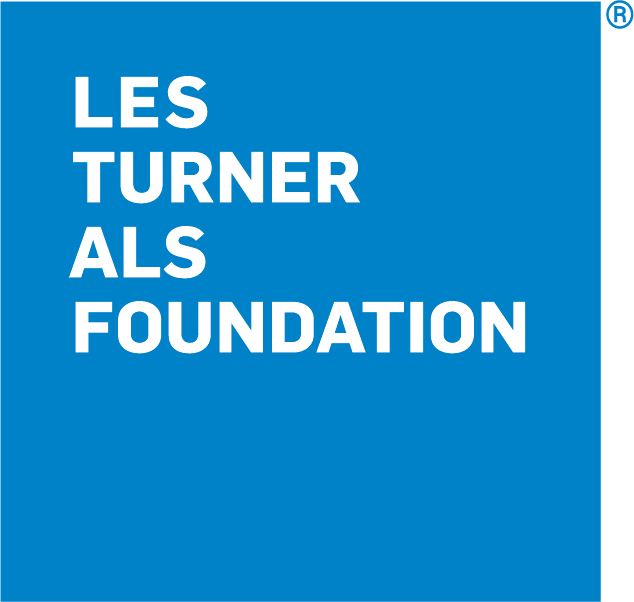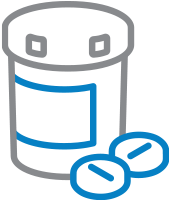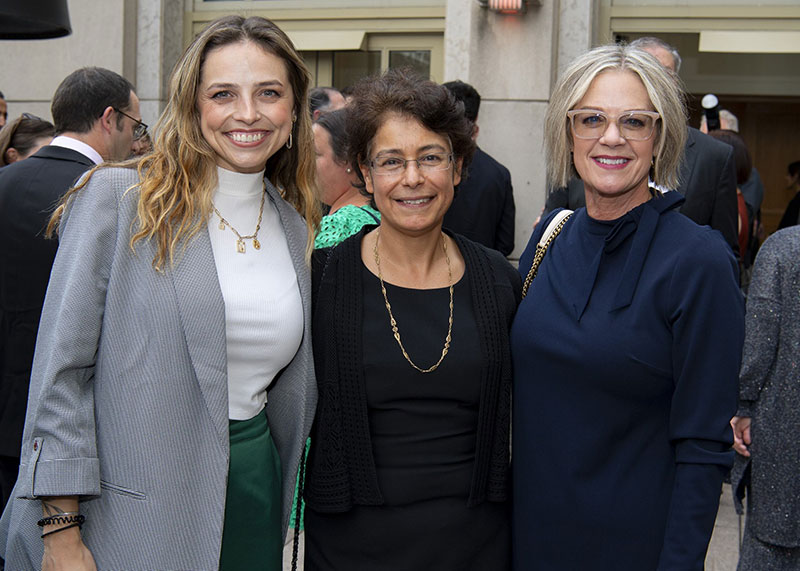ALS Clinical Trials and Studies
The Lois Insolia ALS Clinic at the Les Turner ALS Center at Northwestern Medicine is actively involved in multi-center drug trials, observational trials, and biorepository studies. Our research in ALS encompasses a broad range of protocols. We are working to collect information on biomarkers, learning more about ALS through natural history studies, providing access to study drugs through expanded access programs, and testing new study drugs through clinical trials.
Choosing to participate in a clinical trial or study is an important and personal decision. Our resources can help you learn about ALS clinical research and decide whether participation is right for you. We encourage you to talk with your doctor, family members, and/or friends about your decision to join a research study. If you have questions regarding your eligibility for a research study, you should talk with your neurologist or the study team to determine what you might qualify for.
To learn more about clinical trials and studies at Lois Insolia ALS Clinic at the Les Turner ALS Center at Northwestern Medicine, please contact Emma Schmidt, Clinical Research Project Manager, at emma.schmidt@northwestern.edu or 312-503-4362.
Updated Jan. 13,
Enrolling Observational Studies: Clinical Research to Understand ALS and PLS
ALS/MND Natural History Consortium
The purpose of this research study is to collect clinical information from people living with ALS and other motor neuron disorders through the natural history of their disease. Data is obtained from the participants during their standard of care visits and by reviewing their medical records.
The objective of compiling clinical, phenotypic data over the course of the participants’ disease history is to identify clinical similarities, improve our understanding of these diseases longitudinally, and identify avenues for novel treatment.
Contact: Arleen Matos, Clinical Research Coordinator at arleen.matos@northwestern.edu or 312-503-0748
The National Amyotrophic Lateral Sclerosis Registry
The purpose of this registry is to better describe the incidence and prevalence of Amyotrophic Lateral Sclerosis (ALS) in the United States; examine appropriate factors, such as environmental and occupational, that may be associated with the disease; better outline key demographic factors (such as age, race or ethnicity, gender, and family history of individuals who are diagnosed with the disease) associated with the disease; and better examine the connection between ALS and other motor neuron disorders that can be confused with ALS, misdiagnosed as ALS, and in some cases progress to ALS.
Contact: Cara F. Gallagher M.A., LCPC at cgallagher@lesturnerals.org or 847-745-6053
Oxidative Markers and Efficacy in Amyotrophic Lateral Sclerosis (ALS) Phenotypes Treated With Edaravone
This study is being conducted to help the investigators better understand how the new FDA approved medication Edaravone (also known as Radicava) works in subsets of patients with ALS. The investigators are also trying to understand if there are specific ALS patients, with different presentations of ALS, who might benefit most from this medication. Also, the investigators are following specific biomarkers to determine the optimal treatment duration in patients with different forms of ALS
There is no study medication being offered in this trial. Edaravone is prescribed as part of regular care. In this trial we are collecting blood, urine, and spinal fluid samples in ALS patients who are taking Edaravone and ALS patients who are not taking Edaravone to measure certain markers that could indicate why the drug may be working in a specific type of ALS.
Contact: Hwang Chan Yu, Research Study Coordinator at hwangchan.yu@northwestern.edu
Target ALS Biomarker Study; Longitudinal Biofluids, Clinical Measures, and At Home Measures (TALSLB)
The goal of the study is to generate a biorepository of longitudinal blood (plasma and serum), cerebral spinal fluid (CSF) and urine linked to genetics and longitudinal clinical information that are made available to the research community. To accomplish these goals, we will enroll 200 Amyotrophic Lateral Sclerosis (ALS) patients and 80 healthy controls from multiple sites, over a 5 year time frame. Additionally, speech measures will be collected on weekly basis at home for all participants. The measurements are performed using a speech recording application installed on their personal device. For a subset of both ALS and healthy participants, we will also collect at-home vital capacity on a weekly basis. It is expected that increased frequency data sampling of these outcome measures will help in better tracking of disease progression. Biofluids and clinical information are collected over a 20-month time frame for each individual enrolled in the research study. ALS participants will be coming to clinic for 5 study visits with a 4-month interval between visits. Healthy participants will be coming for 2 study visits with a 12-month interval between visits. These samples and clinical information will be stored in a de-identified manner and made available for investigators to use in future research studies.
Contact: Arleen Matos, Clinical Research Coordinator at arleen.matos@northwestern.edu or 312-503-0748
Enrolling ALS Clinical Trials
Expanded Access Programs
Resources
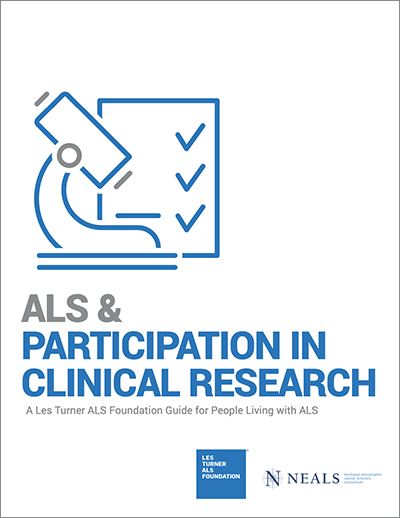
ALS & Participation in Clinical Research Guide
Participating in a clinical research study is an important and personal decision. You can follow these steps to learn about clinical research studies, explore your options, and decide if participating in a study is right for you.
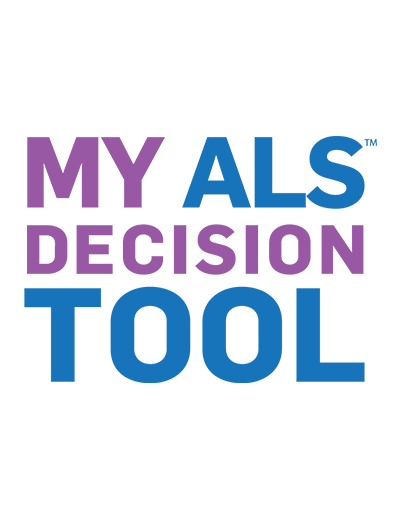
Clinical Research Decision Tool
You can use this My ALS Decision Tool™ module to learn about clinical research and think about whether participating could be right for you. Then you can talk to your medical providers and other people in your life to help you decide.
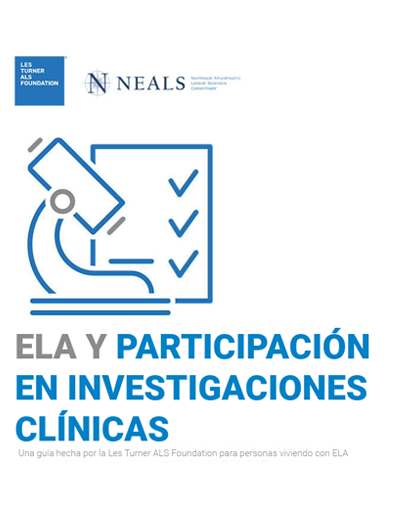
ELA y participación en investigaciones clínicas
Participar en un estudio de investigación clínica es una decisión importante y personal. Puede seguir estos pasos para informarse sobre los estudios de investigación clínica, explorar sus opciones y decidir si participar en un estudio es adecuado para usted.
Clinical Research Team

Senda Ajroud-Driss, MD

Emma Schmidt

Cara Gallagher, MA, LCPC
Candace James
Arleen Matos
Hwang Chan Yu
Kathryn Tally
Testing New ALS Treatments with Urgency
The Les Turner ALS Foundation is committed to accelerating enrollment in ALS clinical research and increasing access to clinical trials, expanded access protocols, and non-therapeutic research studies. Through partnerships with organizations like the Sean M. Healey & AMG Center at Massachusetts General Hospital, we participate in innovative programs like the HEALEY ALS Platform Trial and the Acceleration Centers of Enrollment (ACE) initiative.
"Our goal is to shorten the time that it takes to do traditional clinical trials and broaden patient access to trials, which will help us better understand this disease,” said Senda Ajroud-Driss, MD, Director of the Lois Insolia ALS Clinic.
Enrollment Completed
Additional Resources
The Northeast Amyotrophic Lateral Sclerosis Consortium® (NEALS) is the world’s largest consortium of clinical research sites dedicated to rapidly translating scientific advances into clinical research and new treatments for people with ALS. Through the ALS Clinical Research Learning Institute® (CRLI) Research Ambassador Program for people impacted by ALS, NEALS actively supports the integration of lived experience into the global drug development process by creating collaboration opportunities within the patient community, academia and industry that ensure a patient-centric approach to treatment discovery.
The ALS Trial Navigator (ALS.net/ALS-Trial-Navigator) is a comprehensive resource that helps people living with ALS, find and participate in clinical trials for ALS. After answering a few questions, you can learn about research opportunities, set personal priorities, and find trials that meet your criteria. The Navigator also has an interactive map to help you find trials in your area.


